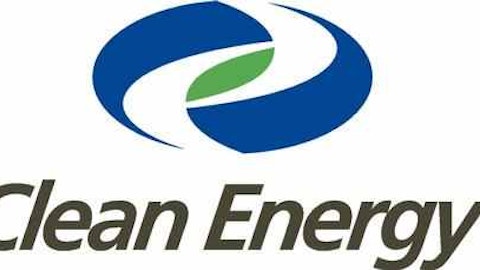Synthetic biology company and industrial bio-enzyme manufacturer Codexis, Inc. (NASDAQ:CDXS) announced its first-quarter earnings after the market closed Tuesday. The industrial enzyme firm is still attempting to get back on its feet after Shell ended a major collaboration in the second half of 2012. The partnership provided more than $350 million to Codexis over several years, so it is easy to see how the developmental-stage company has foundered since. Despite continued losses, it appears that Codexis, Inc. (NASDAQ:CDXS) is slowly climbing back to a bright future. Here is what investors need to know about the latest developments.
Financials
The first three months of 2013 saw increases in product revenue and product gross margin and decreases in cash burn and R&D expenses. Comparing results to the prior-year quarter — when Shell was footing the bill — doesn’t make much sense for investors. Thus, it was a productive period compared to the fourth quarter of 2012.
| 1Q13 | 4Q12 | % Change | |
|---|---|---|---|
| Total revenue | $11.48 million | $7.91 million | 45.1% |
| Product revenue | $9.14 million | $6.83 million | 33.8% |
| Product gross margin | 38% | 15% | 153% |
| Total costs | $21.1 million | $23.7 million | (11%) |
| Net loss | $9.62 million | $15.56 million | (38%) |
Source: Codexis.
Codexis, Inc. (NASDAQ:CDXS) drastically improved its operating efficiency on several fronts on the heels of big developments from partners. Royalties from Merck & Co., Inc. (NYSE:MRK) started rolling in as the pharma giant began using Codexis enzymes in its revitalized manufacturing process for its best-selling type 2 diabetes drug franchise Januvia/Janumet. A one-time milestone payment of $1 million was also received from partner Exela Pharma, which uses Codexis enzymes for its newly approved argatroban injections. Royalties will begin to trickle in from now on.

Partnership outlook
I am still hoping that Codexis, Inc. (NASDAQ:CDXS) will be tapped by Raizen, a joint venture between Shell and sugar giant Cosan Limited (USA) (NYSE:CZZ), as its exclusive cellulase enzyme provider. Raizen has not been shy about its cellulosic ethanol ambitions — planning a 10 million gallon per year facility — but has yet to choose an enzyme technology. Investors should be careful not to assume that Codexis is a lock for the partnership (Raizen is the largest investor in Codexis), but with more than 580 million gallons of first-generation ethanol capacity the opportunity is enormous.
If Raizen does not choose Codexis, Inc. (NASDAQ:CDXS), investors would be right to start wondering what went wrong.
Aside from speculation surrounding Raizen, management stated that it expects to land a commercialization partner for CodeXyme cellulases and/or CodeXol detergent alcohols by the middle of the year. The company is also actively engaged with additional pharmaceutical customers to build upon its expertise with Merck & Co., Inc. (NYSE:MRK).
Product commercialization outlook
Codexis is currently (and finally) commissioning its 1,500-liter CodeXol demonstration facility in Italy with partner Chemtex and will update investors on developments this quarter. Getting the facility on track and hammering out the company’s process will be key to landing commercialization partners in the next year. Management is hoping to initially produce 40,000 metric tons to 60,000 metric tons of detergent alcohols each year at a future commercial facility, so successful development will open a big additional revenue stream.
Additionally, CEO John Nichols stated that the company is pursuing opportunities in enzyme therapeutics, or biologic development. Whereas Merck & Co., Inc. (NYSE:MRK)’s Januvia is a small molecule created in a synthetic process, biologic drugs are produced from living cells and can be orders of magnitude more complex. That hasn’t stopped the pharmaceutical industry from developing biologics, and their ability to treat the causes of diseases rather than symptoms makes them a big focus for many companies. In fact, many of the biggest blockbusters in recent years have been biological therapies.
The company’s enzymes could significantly improve biomanufacturing and aid pharma companies through a difficult regulatory process. This could be an exciting opportunity for Codexis, although it is still an early development and likely years away from producing meaningful contributions.
Foolish bottom line
Attracting new partners and commercializing cellulase enzymes and detergent alcohols are absolutely critical developments to keep an eye on. Investors should not grow content with Merck & Co., Inc. (NYSE:MRK)providing the bulk of revenue for 2013: A recent study found significant health risks associated with Januvia/Janumet. Even worse, new classes of drugs are beginning to hit the market, which could cut demand for Merck’s darling franchise. That could knock Codexis to new lows if it cannot create new relationships. Nonetheless, if everything works out in the end, then investors may be able to look back and wonder how the company could have been valued at $70 million. Just remember to give healthy consideration to the risks.
The article This Biotech Stock Keeps Investors Patiently Waiting originally appeared on Fool.com.
Fool contributor Maxx Chatsko owns shares of Codexis. Check out his personal portfolio, his CAPS page, or follow him on Twitter @BlacknGoldFool to keep up with his writing on energy, bioprocessing, and emerging technologies.The Motley Fool has no position in any of the stocks mentioned.
Copyright © 1995 – 2013 The Motley Fool, LLC. All rights reserved. The Motley Fool has a disclosure policy.



